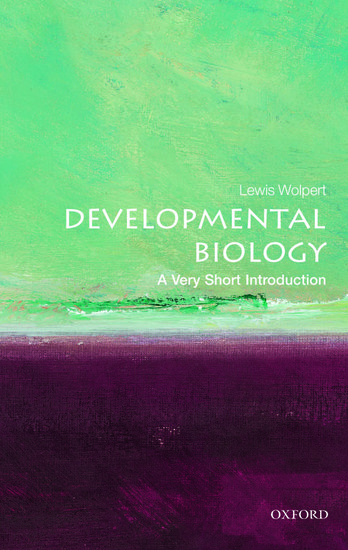Home >
A Very Short Introduction >
Madness (Biology)
A Very Short Introduction | Biology
Madness
ISBN: 9780199601196
Series: A Very Short Introduction
Madness (Biology)
A Very Short Introduction Madness (Biology) Media > Books > Non-Fiction > Education Books Now Available| Order Below |
ISBN
9780199601196 (10-digit ISBN: 0199601194)
- Description
- Key Features
- Series Description
- Table of Contents
- Provocative, entertaining and authoritative examination of a notorious condition
- Wide-ranging account of the Western encounter with madness; incorporating political, social, literary, cultural, artistic, and scientific dimensions
- Explores our responses to madness over the centuries
Madness is something that frightens and fascinates us all. It is a word with which we are universally familiar, and a condition that haunts the human imagination. Through the centuries, in poetry and in prose, in drama and in the visual arts, its depredations are on display for all to see. A whole industry has grown up, devoted to its management and suppression. Madness profoundly disturbs our common sense assumptions; threatens the social order, both symbolically and practically; creates almost unbearable disruptions in the texture of daily living; and turns our experience and our expectations upside down. Lunacy, insanity, psychosis, mental illness - whatever term we prefer, its referents are disturbances of reason, the passions, and human action that frighten, create chaos, and yet sometimes amuse; that mark a gulf between the common sense reality most of us embrace, and the discordant version some humans appear to experience.
Social responses to madness, our interpretations of what madness is, and our notions of what is to be done about it have varied remarkably over the centuries. In this Very Short Introduction, Andrew Scull provides a provocative and entertaining examination of the social, cultural, medical, and artistic responses to mental disturbance across more than two millennia, concluding with some observations on the contemporary accounts of mental illness.
Oxford's Very Short Introductions series offers concise and original introductions to a wide range of subjects--from Islam to Sociology, Politics to Classics, Literary Theory to History, and Archaeology to the Bible.
Not simply a textbook of definitions, each volume in this series provides trenchant and provocative--yet always balanced and complete--discussions of the central issues in a given discipline or field. Every Very Short Introduction gives a readable evolution of the subject in question, demonstrating how the subject has developed and how it has influenced society. Eventually, the series will encompass every major academic discipline, offering all students an accessible and abundant reference library.
Whatever the area of study that one deems important or appealing, whatever the topic that fascinates the general reader, the Very Short Introductions series has a handy and affordable guide that will likely prove indispensable.
Please note: As this series is not ELT material, these titles are not subject to discount.
1: Madness unbound
2: Madness in chains
3: Madness confined
4: Madness and meaning
5: Madness denied
6: Madness cast out
Further Reading
Index
Madness is something that frightens and fascinates us all. It is a word with which we are universally familiar, and a condition that haunts the human imagination. Through the centuries, in poetry and in prose, in drama and in the visual arts, its depredations are on display for all to see. A whole industry has grown up, devoted to its management and suppression. Madness profoundly disturbs our common sense assumptions; threatens the social order, both symbolically and practically; creates almost unbearable disruptions in the texture of daily living; and turns our experience and our expectations upside down. Lunacy, insanity, psychosis, mental illness - whatever term we prefer, its referents are disturbances of reason, the passions, and human action that frighten, create chaos, and yet sometimes amuse; that mark a gulf between the common sense reality most of us embrace, and the discordant version some humans appear to experience.
Social responses to madness, our interpretations of what madness is, and our notions of what is to be done about it have varied remarkably over the centuries. In this Very Short Introduction, Andrew Scull provides a provocative and entertaining examination of the social, cultural, medical, and artistic responses to mental disturbance across more than two millennia, concluding with some observations on the contemporary accounts of mental illness.
Key Features
- Provocative, entertaining and authoritative examination of a notorious condition
- Wide-ranging account of the Western encounter with madness; incorporating political, social, literary, cultural, artistic, and scientific dimensions
- Explores our responses to madness over the centuries
Series Description
Oxford's Very Short Introductions series offers concise and original introductions to a wide range of subjects--from Islam to Sociology, Politics to Classics, Literary Theory to History, and Archaeology to the Bible.
Not simply a textbook of definitions, each volume in this series provides trenchant and provocative--yet always balanced and complete--discussions of the central issues in a given discipline or field. Every Very Short Introduction gives a readable evolution of the subject in question, demonstrating how the subject has developed and how it has influenced society. Eventually, the series will encompass every major academic discipline, offering all students an accessible and abundant reference library.
Whatever the area of study that one deems important or appealing, whatever the topic that fascinates the general reader, the Very Short Introductions series has a handy and affordable guide that will likely prove indispensable.
Please note: As this series is not ELT material, these titles are not subject to discount.
EASY ORDER FORM
PRICES LISTED INCLUDE CONSUMPTION TAX
Price Before Tax:
¥1,790


